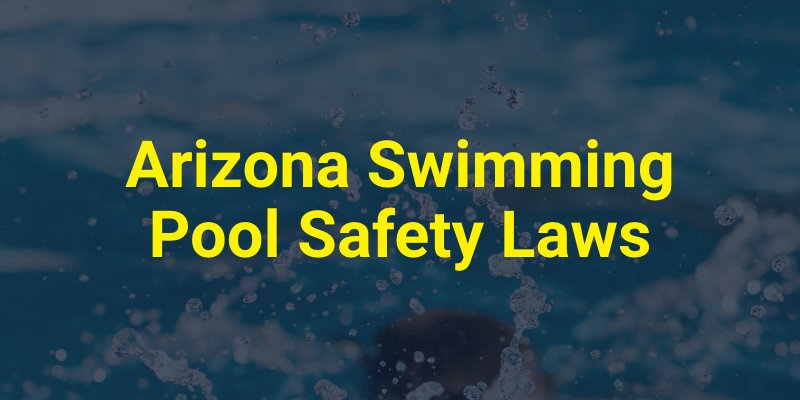Swimming pool safety is a critical concern in Arizona, given the high temperatures and prevalence of residential pools across the state. For personal injury victims, understanding these pool safety laws can be pivotal in determining liability and pursuing claims.

Under Arizona state law, any swimming pool or similar body of water that is 18 inches deep and eight feet or wider must be completely enclosed by a barrier that is at least five feet high. This regulation applies to both below-ground and above-ground pools. The barrier must not contain any openings larger than four inches in diameter to prevent children from passing through.
The horizontal components of the barrier should be spaced a minimum of 45 inches apart when measured vertically or located on the poolside, ensuring no openings exceed one and three-quarter inches horizontally. For wire mesh or chain-link fences, the mesh size must not surpass one and three-quarter inches.
Gates within the pool enclosure are required to be self-latching and self-closing, and they must open outward, away from the pool area. The height and exact positioning of the latch are determined by its proximity to the pool, ensuring it remains out of reach for young children.
The barrier must not have any handholds, footholds, or other structures that could facilitate climbing. Additionally, the barrier must be situated at least 20 inches from the water’s edge to provide a safe buffer zone.
These pool enclosure requirements do not apply to pools built before June 2, 1991, public or semi-public pools, or residences where all occupants are at least six years old.
All swimming pool contractors and sellers in Arizona are required to provide buyers or renters with a notice explaining the safety responsibilities associated with pool ownership.
Violation of Arizona’s pool enclosure law is considered a petty offense. However, offenders can avoid fines by installing the required enclosures within 45 days of receiving a citation and attending a pool safety course.
If you or a loved one has sustained injuries due to poor pool safety or negligence, it is crucial to take immediate action to protect your rights and ensure proper recourse.
The first and most crucial step is to seek immediate medical attention. Prompt treatment can mitigate the severity of injuries and ensure your health is not further compromised. Keep all medical records and documentation of your injury, as these will be vital for any legal proceedings.
Thoroughly document the incident as soon as possible. This includes taking photographs of the pool area, any visible injuries, and the specific hazards that led to the injury. Gather contact information of any witnesses who can corroborate your account of the incident.
Report the injury to the property owner or the entity responsible for pool maintenance. File an official report and request a copy for your records. This creates a formal record of the incident, which can be crucial if the case goes to court.
Contact a qualified personal injury attorney who specializes in pool-related accidents. Legal expertise is essential to navigate the complexities of negligence laws and to determine the viability of your case. An attorney can guide you through the process of filing a claim and securing the compensation you may be entitled to.
Your Phoenix swimming pool accident attorney will help you file a claim against the negligent party. This process involves demonstrating that the owner or responsible party failed to provide a safe environment and that their negligence directly caused your injury. Compensation may include medical expenses, lost wages, pain and suffering, and other related costs.
If the case goes to trial, follow your attorney’s advice and attend all required legal proceedings. Consistent participation and cooperation with your legal team will enhance the chances of a favorable outcome.
By adhering to these steps, you can ensure that your rights are protected and that you take the necessary actions to seek justice for injuries sustained due to someone else’s negligence. If you are injured and have questions or need help, contact us today to schedule a free consultation.